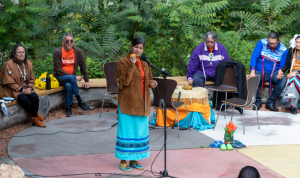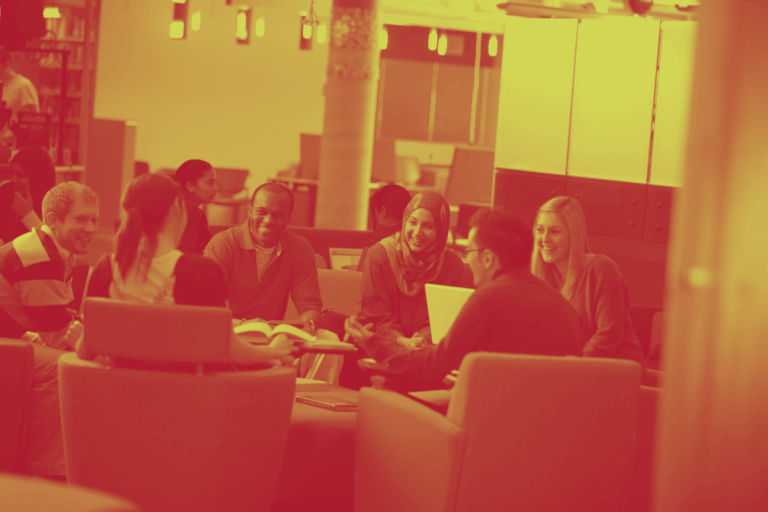Priorities & Planning (P&P)
Expandable List
- Planning PACBIC meeting agendas
- Anticipating emerging issues and working group activities
- Determining how best to channel PACBIC recommendations / concerns / questions into the university’s infrastructure
- Preparation of the annual report
- Oversight of the budget and approval of funding requests for PACBIC sponsorship or support.
- Membership includes all Working Group Conveners
Disability, Inclusion, Madness, Accessibility, NeuroDiversity (DIMAND)
Disability, Inclusion, Madness, Accessibility, NeuroDiversity (DIMAND) Working Group endeavours to identify and recommend to the University, through PACBIC, the prevention and removal of barriers that persons with disabilities encounter on the main campus and other McMaster sites as well as through programs, policies, practices, and services provided by the University.
DIMAND will:
- Provide forum for discussion, reflection and learning on issues of inclusion and accessibility.
- Work collectively to provide commentary on systemic ableism and saneism within existing PSE policies, systems, and environments.
- Collectively work together to raise awareness in public forums through the development of events and event series, to amplify marginalized scholars, professionals and community members working in disability, accessibility, and critical disability / mad studies fields.
We are a disability justice focused working group comprised of members who bring scholarly, professional, and lived lenses of accessibility and disability inclusion, and critical disability and critical mad studies working to identify, anticipate and proactively address issues affecting Disabled, Neurodiverse and Mad people within the University community and relevant to those seeking access to the University to advise PACBIC on such issues. We are comprised of undergrad and grad students; employees; instructors; faculty; tas; RAs, etc. (part-time and full-time).
DIMAND focuses on the following goals throughout the academic and fiscal year:
- Provides space for McMaster’s disability community to meet and discuss current concerns.
- Coordinate and advertise various disability community events, including:
- National Accessibility Week at the end of May/Start of June
- International Day for Persons with Disabilities on December 3rd
Anyone within the McMaster community who experiences disability, disablement, chronic illness, and/or a health, mental health and/or addiction concerns. Allies to these communities are also welcome in the group. (Staff, students, faculty / instructors).
First Nation, Métis and Inuit Priorities (FNMI)
The Indigenous Strategic Directions launched in September 2021 developed by Indigenous Education Council (IEC) and McMaster Indigenous Research Institute (MIRI) will act as a guide for the University as a whole, with four main strategic goals of research, education, student experience and leadership and governance.

National Day of Truth and Reconciliation – September 30, 2021
McMaster – The Daily News
Reflections on the National Day for Truth and Reconciliation
Gender & Sexuality Working Group (G&S)
The Gender & Sexuality Working Group (G&S) aims to advocate for McMaster staff, faculty, and students part of gender and sexually diverse communities, including women, non-binary folks, and 2SLGBTQIA+ folks. G&S does this by: Creating space for gender and sexually diverse community members on campus through events and other programming; Identifying and recommending to the University, barriers facing gender and sexually diverse community members that prohibit their full engagement as staff, faculty, and students; and Challenging sexism, homophobia, heteronormativity, transphobia, transmisogyny, cisnormativity, bi-erasure, and other forms of discrimination and violence facing these communities.
Navigating the Intersections of Spiritual and 2STLGBQIA+ Identities
March 2022
Hosted in collaboration with the Race, Racialization & Racism and Interfaith working groups.
This panel invited McMaster University staff, faculty, students, and community members into a discussion about navigating and nurturing the intersections between spiritual and 2STLGBQIA+ identities.
Speakers:
- Aaron Jacobs
Youth Programming Support Worker, 2-Spirited People of the 1st Nations - Zachary Kroezen
Research Assistant, McMaster University - Dr. Arig al Shaibah
Associate Vice-President, Equity and Inclusion, McMaster University - Emunah Woolf
Director, MSU Maccess
Understanding Trans and Gender-Diverse Student Experiences of Online Learning
August 2021

Read the Report
The report serves as a tangible—albeit introductory—resource for cisgender instructors to create more inclusive spaces for trans students in online, hybrid, and in-person learning.
Interfaith Working Group
We invite collaboration among religious/spiritual identities, demonstrating their cultural significance and intersectional relationship. Such collaboration and consolidation not only reveals the eclectic nature of religious, secular and spiritual identities at McMaster University, but empowers the importance of equity among them, and their dignity within the wider mosaic of university/communal life.
More about Interfaith Working Group
A pluralistic religious/cultural/spiritual group of education and advocacy.
The Interfaith Working Group (IFWG) identifies and recommends initiatives and actions related to emerging interfaith/spiritual/cultural issues on campus. It engages with campus partners to raise issues of mutual concern, demonstrate solidarity and identify ways to provide diverse food choices available at a reasonable cost to meet religious/spiritual and Indigenous dietary needs for McMaster staff, students and faculty members.
The IFWG enabled the creation of the Religious, Indigenous, Spiritual Observances (RISO) Accommodation policy when academic obligations conflict with RISO.
Information Box Group

Spiritual Care and Learning Centre Learn More
The formation and implementation of the new pluralistic Spiritual Care and Learning Centre (SCLC) for Religious, Secular and Spiritual Communities at McMaster, is the direct result of the efforts of the Interfaith Issues Working Group (IFWG) of PACBIC.
Race, Racialization and Racism Working Group (R3)
In response to ongoing conversations on campus around intersectional forms of racism, and barriers to inclusion faced by diverse groups of people of colour, Indigenous, Métis, First Nations and Inuit communities, PACBIC formed an Anti-Racism Working Group in March 2015 by Dr. Ameil Joseph and Kojo Damptey. This working group objectives are to: work with McMaster’s diverse communities of colour, Indigenous, First Nations, Métis and Inuit (FNMI) communities to identify and address issues affecting these communities both within the University, and in the broader McMaster community provide subject matter expertise on issues related to racism and anti-racism, as well as increase awareness about the differential impact of racism on diverse communities provide advice to PACBIC on the planning and development of policies, and programs related to anti-racism. develop concrete anti-racism strategies using an intersectional lens focused on “building an inclusive community with a shared purpose”, within the University, and the broader McMaster and Hamilton communities.
